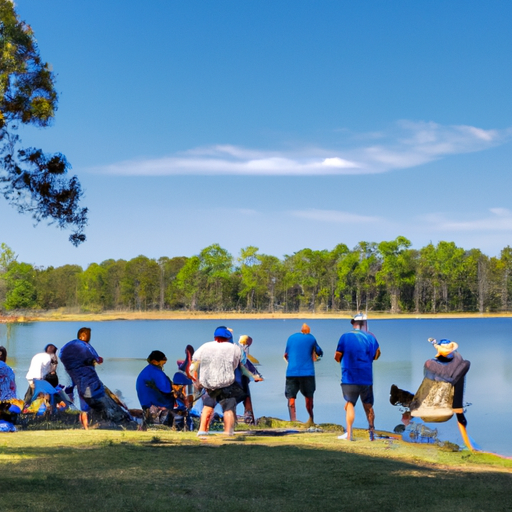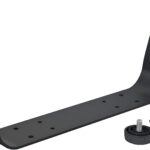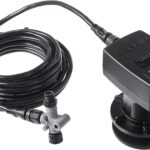“Joining Fishing Clubs For Tips, Tricks, And Camaraderie” is your go-to guide if you’re looking to take your angling skills up a notch. The article presents a compelling case for why linking up with a fishing club can lead to not only better fishing results but also a sense of community. You’ll find an informative rundown of the benefits you stand to gain from pooling knowledge with fellow enthusiasts within a club setting including insightful tips, ingenious tricks, heartfelt camaraderie and the shared joy of a common passion.
Understanding the Value of Fishing Clubs
If you’re a fishing enthusiast or just getting started, joining a fishing club could be an enriching and rewarding experience. Fishing clubs are much more than a group of individuals who share a love for fishing. They typically offer a range of benefits such as shared knowledge, camaraderie, organized events and tournaments, opportunities for community service, and even involvement in conservation efforts.
What is a Fishing Club?
A fishing club is a community of people who share a passion for fishing. Its primary objective is to promote the sport and facilitate learning among its members. Depending on the club, fishing could be a hobby, a competitive sport, or a way of life. While each club has its distinct structure and agenda, the underlying ethos remains the same – fostering a love for fishing.
The Benefits of Joining a Fishing Club
Joining a fishing club comes with numerous benefits. Besides the chance of fishing in company, members can learn tips and tricks from seasoned fishermen, create lifelong friendships, engage in competitions, and play a part in conservation efforts. The club usually organizes fishing trips and events, making fishing a socially engaging activity, thus adding to your overall enjoyment of the sport.
Learning Fishing Tips and Tricks
One of the primary benefits of joining a fishing club is the opportunity to learn and improve your fishing skills. Clubs are usually an excellent mix of amateur anglers and experienced veterans who are often willing to share their knowledge and expertise.
How Clubs Facilitate Knowledge Sharing
Clubs enable knowledge sharing through various platforms. Some clubs organize fishing workshops and seminars where members not only learn about types of fish and their habits but also get training on the use of different fishing gear. Some clubs have dedicated sessions for discussing fishing stories and learning from others’ experiences.
Common Tips and Tricks Learned in Fishing Clubs
Fishing clubs are a goldmine of useful tips and tricks. These range from learning how to tie the perfect knot, understanding fish behaviors, the art of casting the line, to mastering the use of different fishing gear. Even if you’re an experienced angler, there’s always something new to learn.
The Role of Expert Fishermen in Clubs
Expert fishermen often play a crucial role in clubs. They are usually more than happy to share their wisdom and experience, acting as mentors for newer or less experienced members. Their tips can be invaluable, helping you to elevate your fishing skills significantly.
Forming Bonds through Fishing Clubs
Another often-overlooked benefit of fishing clubs is the creation of deep and lasting friendships. Shared interests naturally bring people closer, and it’s no different when it comes to fishing clubs.
The Social Aspect of Fishing Clubs
Fishing clubs provide excellent opportunities for socialization. Whether during fishing trips, club meetings, tournaments, or social events, interacting with people who share your passion builds a sense of camaraderie that usually turns into lasting friendships.
Building Relationships Through Shared Interest
The common interest in fishing acts as a bond, connecting members in a unique way. Members typically hang out not only during planned activities but also outside of the club, discussing anything from the biggest catch to the best fishing spots.
Club Events and Gatherings
Fishing clubs often organize social events and gatherings, which are perfect opportunities for members to interact and strengthen bonds. These could include fishing tournaments, social gatherings, group fishing trips, workshop sessions, and more.
The Structure of Fishing Clubs
Just like any organization, fishing clubs have a particular structure they follow. This helps maintain orderliness and ensures smooth operating of the club activities.
Understanding the Organizational Component of Clubs
The structure of fishing clubs usually entails roles such as club president, vice president, secretary, and treasurer. These roles are critical in coordinating meetings, planning events, maintaining club records, and managing funds. Some clubs also have committees for specific tasks such as competitions, conservation, fundraising, and more.
Membership Roles and Responsibilities
All members of a fishing club play crucial roles in its functioning. Beyond attending meetings and participating in events, members support each other by sharing fishing techniques, respecting the club’s rules and regulations, joining in conservation activities, and promoting angling in their community.
Club Committees and Their Functions
To manage the different aspects of club activities, specific committees are usually formed. For instance, the conservation committee takes the lead in any environmental initiatives, the events committee organizes all social activities, while the competition committee manages tournaments and competitions. This organization helps to distribute responsibilities and ensure smooth running of the club.
Exploring Different Types of Fishing Clubs
There are various kinds of fishing clubs available, each focused on a particular type of fishing. The type of club you join will depend on your fishing interests and goals.
Saltwater Fishing Clubs
Saltwater fishing clubs are for those who enjoy fishing in the ocean and open water. Some may specialize in certain species like bass or tuna, and activities can range from pier and surf fishing to deep-sea fishing.
Freshwater Fishing Clubs
Freshwater clubs are dedicated to fishing in rivers, lakes, and streams. They typically focus on freshwater species like trout, salmon, or carp. Fishing trips can include activities such as river fishing, lake fishing, or fly fishing.
Fly Fishing Clubs
Fly fishing clubs are specialized clubs where members use the fly fishing technique. This method involves creating and using artificial flies as lures. Members of these clubs often participate in relaxing fishing sessions in both freshwater and saltwater environments.
Sport Fishing Clubs
Sport fishing clubs focus on the thrill of catching large fish, often in a competitive setting. They arrange regular fishing tournaments and competitions for members to show off their skills and compete for prizes.
Choosing the Right Fishing Club
When choosing a fishing club, it’s essential to consider your fishing interests, your goals, the club offerings, location, and meeting schedules. A right club is one that aligns with your objectives and complements your lifestyle.
Assessing your Fishing Interests and Goals
Understanding what kind of fishing you enjoy – freshwater, saltwater, fly fishing, or sport fishing – and what you aim to achieve from the club, whether leisure or competition, can help you select the right club.
Comparing Clubs and their Offerings
Different clubs offer different activities and benefits. Some might have a significant focus on conservation, some might heavily involve in competitions, while others might prioritize social activities and community involvement.
Club Locations and Meeting Schedules
Location is another crucial factor – ideally, the club location should be convenient for you. Additionally, check the meeting schedules and ensure they fit into your routine.
Joining Your First Fishing Club
Ready to join a fishing club? Great! The process usually involves submitting an application, paying membership dues, and familiarizing yourself with the club’s etiquette and rules.
The Application Process
The application process might typically involve filling an application form with personal details and stating your interests and goals related to fishing.
Membership Fees and Dues
Most clubs have annual membership fees to manage the club’s activities and operations.
Club Rules and Etiquette
Once you’ve joined the club, familiarize yourself with the club’s rules and etiquette – respecting these ensures a harmonious and rewarding experience for everyone.
Participation in Club Tournaments and Competitions
Taking part in club tournaments and competitions can be a thrilling aspect of the fishing club experience. These events not only encourage friendly competition but are also valuable learning opportunities.
The Excitement of Club Tournaments
Club tournaments create a sense of excitement and camaraderie among members. It’s not just about winning; it’s the thrill of competing, improving, and having fun together.
Beneficial Learning Experience from Competing
Participating in competitions provides a great opportunity to put your skills to the test and learn from others. You get to see a variety of fishing techniques in action, discover new strategies, and improve your skills.
Sportsmanship in Club Competitions
Club competitions emphasize sportsmanship. Respect for fellow competitors, acceptance of the judge’s decision, and genuine appreciation of others’ skills are all significant aspects of these events.
The Role of Conservation in Fishing Clubs
Many fishing clubs are active in promoting conservation and environmental awareness. They recognize the important role they play in preserving the very environment that enables their beloved sport.
Promoting Environmental Awareness Among Members
Fishing clubs often take up the responsibility of educating members about the importance and methods of conservation. This could include talks about sustainable fishing practices, the impact of climate change on fish populations, and the importance of clean water bodies.
Participation in Conservation Projects
Many fishing clubs participate in conservation projects. These could range from habitat restoration, clean-up drives, and the nurturing and release of fish species.
The Role of Fishing Clubs in Protecting Fishing Habitats
By actively participating in conservation projects and promoting sustainable practices, fishing clubs play a key role in protecting fishing habitats.
Involvement in Community Activities
Fishing clubs often go beyond the members and extend their passion for fishing to the broader community.
Club’s Role in Promoting Fishing in the Community
Fishing clubs usually promote fishing in the community by organizing public fishing events, offering fishing lessons, or holding exhibits or fairs.
Participation in Community Service
Often, fishing clubs take up community service projects. These could range from cleaning local ponds and lakes, helping preserve local fish habitats, to organizing fishing days for kids.
Partnerships with Other Local Organizations
Fishing clubs often partner with other local organizations for various projects and events. This collaboration not only aids in achieving shared objectives but also reinforces their position as an important part of the community.
All in all, joining a fishing club opens up a world of benefits – knowledge sharing, friendship, competition, conservation, and community service. Whether a seasoned angler or a beginner, you have much to gain from being a part of a fishing club. Happy fishing!










